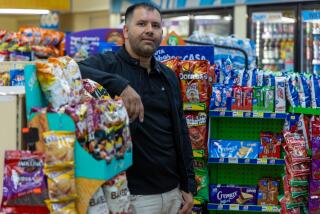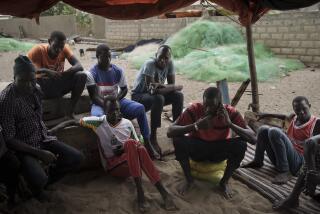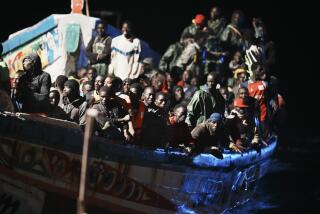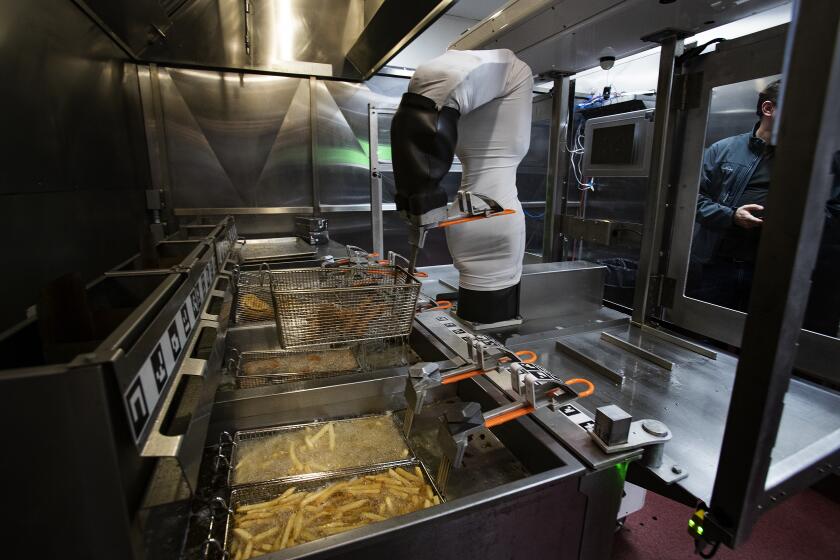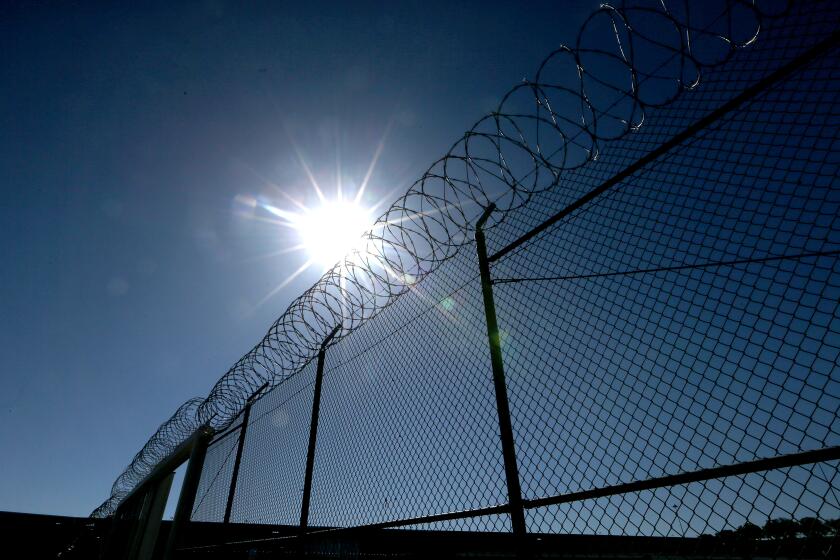Op-Ed: For Europe’s refugees, volunteers can make all the difference
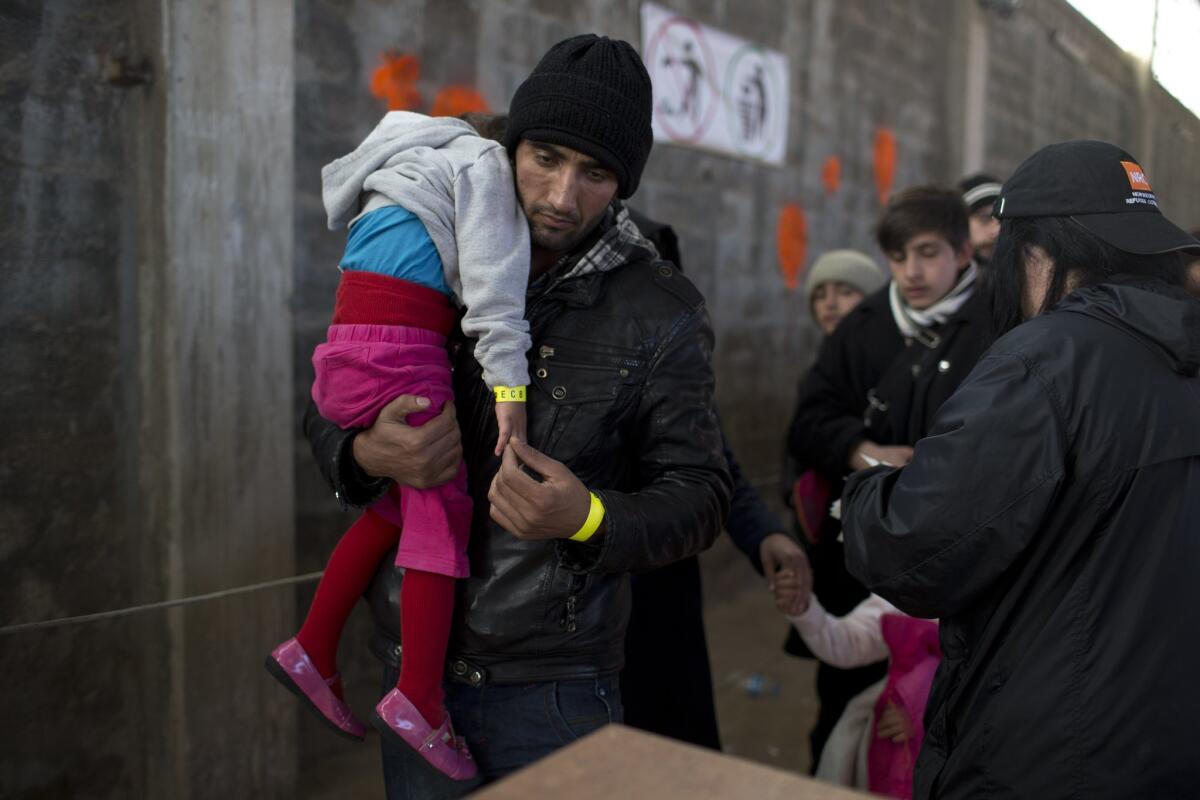
An Afghan man and his daughter receive wristband tags at Tabakika registration center, located on Chios Island in Greece, on Jan. 15.
Tabakika was once a tobacco factory. Now it’s a dust filled, dimly lit, altogether dreary overflow center for refugees on the Greek island of Chios where many spend their first night, huddled around space heaters like the ones you might find at a restaurant, stretched out on broken down cardboard boxes or directly on concrete. This is their welcome to Europe.
The refugees arrive from wartorn countries in glorified dinghies; often smugglers push them off the boats early and they must swim to shore, finally setting foot on land cold and wet. Some are in shock. Some have hypothermia. Most are hungry.
Shoes that fit are a luxury.
Recently the Greek government opened a registration “hotspot” just outside of Chios; a contractor there provides food and water. But it’s simply not big enough to meet demand, so refugees are sent on to Tabakika and entrusted to volunteers—not United Nations, European Union or international NGOs—responsible for buying provisions, cooking and distributing meals at a cost of 50 cents per person.
Volunteers use WhatsApp to circulate urgent messages. “Food for 300 needed at the port.” “Low on jackets and socks! And men’s pants!” “We need a doctor for someone with a broken leg.” “Two boats arrived on the shores and the refugees are soaked from head to toe. Can someone bring dry clothes, especially for children?”
While food and potable water are of course basic necessities, warmth is just as critical in the winter months. During blanket distribution, after the sun goes down, the refugees are desperate. Exhausted men and women confront volunteers at every turn, tug at the blankets, push other refugees, yell “baby, baby” (meaning they have a baby that needs a blanket).
But ask almost any volunteer anywhere in Greece, from Lesvos to Athens to Idomeni, and they will tell you that even more than food and blankets, shoes are the hottest commodity.
The refugees’ shoes are in shambles, ruined by sea salt and arduous journeys out of the Middle East. Replacements are essential—they may have long, snowy marches ahead. So the refugees line up for shoes; and the volunteers fight through language barriers using hand signals, broken English and numbered cards to figure out sizes. More often than not, the volunteers then point apologetically to a plastic box filled with mismatched pairs, some too big, others too small. Shoes that fit are a luxury.
“We’re out of shoes! Does anyone have any shoes?” plead the messages on WhatsApp.
The refugee crisis in Europe is only just beginning. If eventual integration is the goal for those who can never go home, then first impressions matter, and the first impressions on Chios are rarely good. Just imagine fleeing violence, risking death on a tiny boat across the Mediterranean, only to fight for blankets and a tight pair of shoes. Although the new “hotspot” and others like it may improve matters in time, there’s little reason for optimism.
Volunteers in Greece and elsewhere are attempting to turn an impossible situation into a tolerable one with only limited donations, material and financial. What they can muster together truly matters. A thin blanket breeds frustration and resentment; but if a volunteer can find a warm jacket and a hot cup of soup for a little girl, she and her parents will feel grateful and indebted to the people of the continent taking them in.
Joshua Newton volunteered on Chios in December and January. He works as a consultant on international water policy for international NGOs and the United Nations.
Follow the Opinion section on Twitter @latimesopinion and Facebook
More to Read
A cure for the common opinion
Get thought-provoking perspectives with our weekly newsletter.
You may occasionally receive promotional content from the Los Angeles Times.
